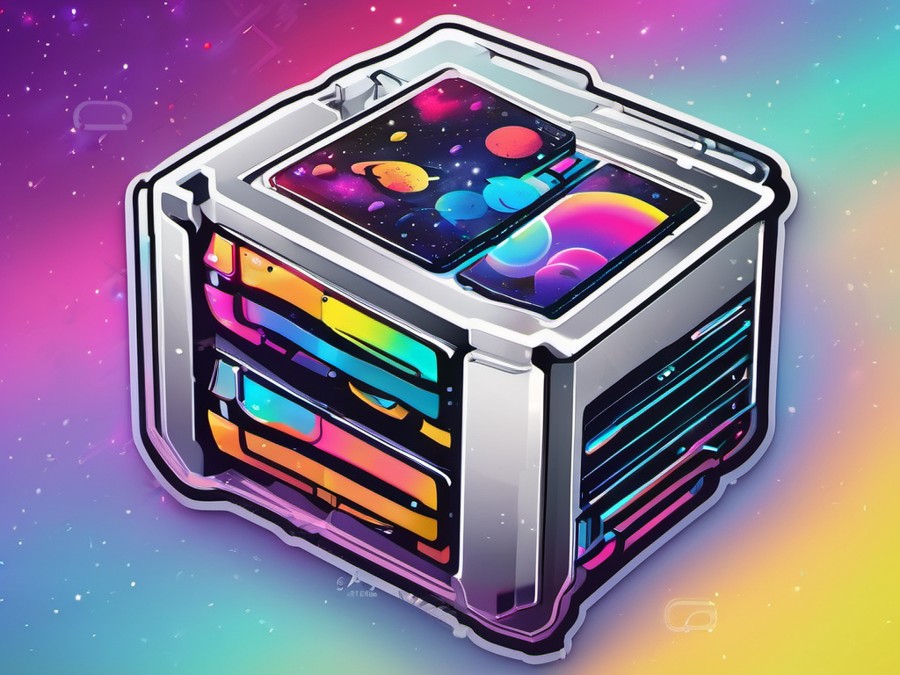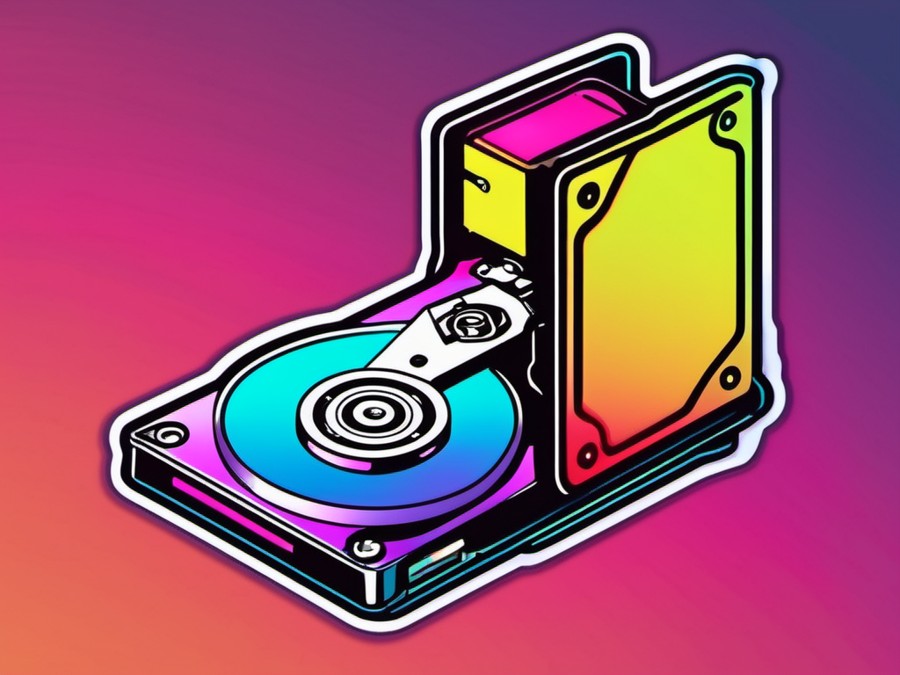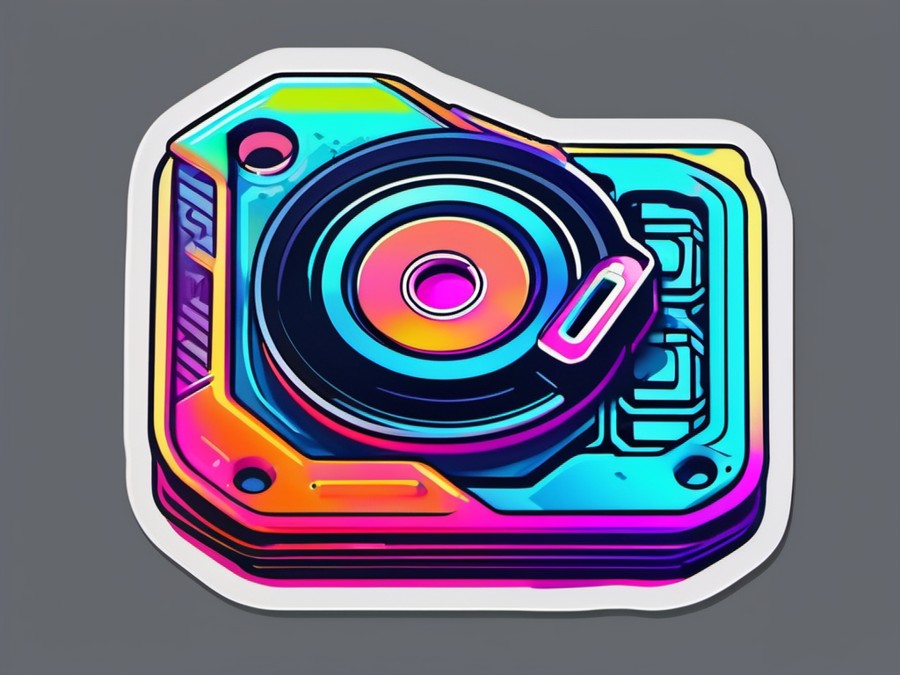· Charlotte Will · Hard Drive Accessories · 7 min read
What is a Hard Drive Rack and How to Choose the Right One?
Discover what a hard drive rack is and how to choose the right one for your needs. Learn about the benefits, types, key factors to consider, and popular brands of hard drive racks. Whether you're setting up a home server or managing data for your business, this guide has everything you need to make an informed decision.

In today’s data-driven world, managing and storing digital information efficiently is paramount. Enter the hard drive rack, a crucial component in both personal and professional data management setups. But what exactly is a hard drive rack, and how do you choose the right one for your needs? Let’s dive in.
Understanding Hard Drive Racks
What is a Hard Drive Rack?
A hard drive rack is essentially a storage solution designed to hold multiple hard drives securely and efficiently. These racks can range from simple, open-frame structures to more complex, enclosed units with various features.
The Purpose of Hard Drive Racks
Hard drive racks serve multiple purposes. Organizationally, they help keep your hard drives in order, making it easier to manage and access data. In terms of data management, they provide a structured way to expand your storage capacity as needed. Additionally, security is enhanced by keeping drives in a secure and monitored location.
Different Types of Hard Drive Racks
When exploring hard drive racks, you’ll come across several types:
- Open Frame Racks: These are typically basic structures with no enclosure, offering better airflow but less physical protection.
- Enclosed Racks: These offer enhanced security and protection from dust, making them ideal for more sensitive environments.
- Wall-Mounted Racks: Perfect for saving floor space, these racks can be mounted on walls.
Why Use a Hard Drive Rack?
Space Optimization
A hard drive rack can significantly optimize your physical space. Rather than having hard drives scattered around, a rack keeps them organized and compact. If you’re working in a limited space environment like a home office or small business, this can be a real game-changer.
Cable Management
One of the biggest challenges with multiple hard drives is cable management. Racks often come with built-in features to organize and hide cables, reducing clutter and improving airflow. Good cable management is not just about aesthetics; it also helps in maintaining the health of your hard drives.
Accessibility
With a hard drive rack, you can easily access each hard drive without needing to move or disconnect others. This makes routine maintenance and data management a breeze, enhancing overall operational efficiency.
Key Factors When Choosing a Hard Drive Rack
Capacity Considerations
The first thing to consider is the number of hard drives the rack can accommodate. This will depend on your current and future storage needs. It’s essential to plan for scalability, so choose a rack that can grow with your data requirements.
Scalability
Scalability is crucial, especially for growing businesses or individuals with expanding digital libraries. Opt for a rack that can easily accommodate additional hard drives as your needs increase.
Compatibility
Ensure that the hard drive rack is compatible with your hardware. This includes not just the type and size of hard drives but also any additional equipment you plan to integrate, such as a server or NAS (Network Attached Storage).
Cooling and Ventilation
Proper airflow is vital for the health and longevity of hard drives. Look for racks with good ventilation systems to prevent overheating and ensure the drives operate within their optimal temperature range.
Security Features
Depending on your needs, you might want a rack with physical security features like locking mechanisms to prevent unauthorized access. This is especially important in environments where data sensitivity is a concern.
Additional Considerations
Budget and Value for Money
When choosing a hard drive rack, it’s important to strike a balance between your budget and the features you need. Consider the long-term value of investing in a more robust system that can handle future expansions rather than opting for a cheaper, less scalable option.
Aesthetics
While functionality is paramount, aesthetics also matter. If your rack will be in a visible area, you might want one that complements your existing setup. Some racks come in various finishes and designs to suit different environments.
Ease of Assembly
Finally, consider the ease of assembly. Some racks are more user-friendly than others. If you’re not particularly handy with tools, look for racks that come with clear instructions and are designed for easy installation.
Advanced Features to Look For
Integrated Cable Management Systems
A good cable management system can save you a lot of headaches. Look for racks with built-in features that help organize and hide cables, making your setup cleaner and more efficient.
Power Distribution Units (PDUs)
Power Distribution Units (PDUs) are centralized power management systems that can be very useful in larger setups. They allow you to manage the power supply for all your devices from a single point, reducing complexity and improving efficiency.
Rack Mounted UPS (Uninterruptible Power Supply)
Uninterruptible Power Supplies (UPS) are critical for ensuring continuous power supply to your hard drives. Look for racks that support UPS units, especially if you’re dealing with sensitive data that cannot afford any downtime.
Popular Hard Drive Rack Brands
StarTech
StarTech is a well-known brand in the hard drive rack space, offering a range of racks with various features and capacities. Their products are often praised for their durability and ease of use.
Tripp Lite
Tripp Lite is another popular choice, known for its robust and reliable racks. They offer a good balance between functionality and affordability, making them suitable for both home and business use.
APC by Schneider Electric
APC by Schneider Electric is a leader in power and cooling solutions. Their racks often come with advanced features like integrated PDU systems, making them ideal for more complex setups.
Common Misconceptions About Hard Drive Racks
Are They Only for Server Rooms?
One common misconception is that hard drive racks are only for server rooms. While they are indeed widely used in professional environments, they are equally beneficial in home setups for managing personal data storage.
Do They Require Specific Technical Knowledge?
Many people believe that setting up a hard drive rack requires specific technical knowledge. However, most modern racks are designed to be user-friendly and come with clear instructions for easy assembly.
Real-World Examples and Stories
Home Server Setup
I remember setting up my home server with a hard drive rack. It completely transformed the way I managed my digital library. No more scattered hard drives; everything was organized and easily accessible. It made routine maintenance a breeze, and I even found it easier to expand my storage capacity as my needs grew.
Small Business Storage Solution
A friend of mine runs a small business and was struggling with data management. By investing in a hard drive rack, he not only organized his data but also improved security and accessibility. It turned out to be a game-changer for his business operations, providing a reliable and scalable storage solution.
Conclusion
Choosing the right hard drive rack is crucial for both personal and professional data management. By understanding the various types, their benefits, and key considerations for selection, you can ensure that your data storage solution is efficient, secure, and scalable. Don’t overlook the importance of a well-organized storage system—it can make a world of difference in how you manage and access your data.
FAQs:
Q1: Can a hard drive rack be used without a server? A: Yes, hard drive racks can be used independently for storage purposes. They are often used in home setups and small offices where a dedicated server isn’t required.1
Q2: What is the difference between an open frame rack and an enclosed rack? A: Open frame racks are more basic, focusing on functionality and allowing for better airflow. Enclosed racks provide additional physical security and protection from dust, making them ideal for more sensitive environments.2
Q3: How do I know if my hard drives are compatible with a rack? A: Most modern hard drive racks are designed to accommodate standard sizes. However, it’s always a good idea to check the rack specifications and compare them with your hard drive dimensions.3
Q4: Do I need any special tools to install a hard drive rack? A: Generally, standard tools like screwdrivers and wrenches will suffice. Some racks may come with necessary tools or have instructions for easy assembly.4
Q5: Can I use a hard drive rack for other devices besides hard drives? A: Yes, many hard drive racks are versatile and can hold other devices such as routers, switches, and network-attached storage (NAS) units. Always check the rack’s specifications for compatibility with other devices.5




